Browse the Collection
Browsing 42 items in our archive
-
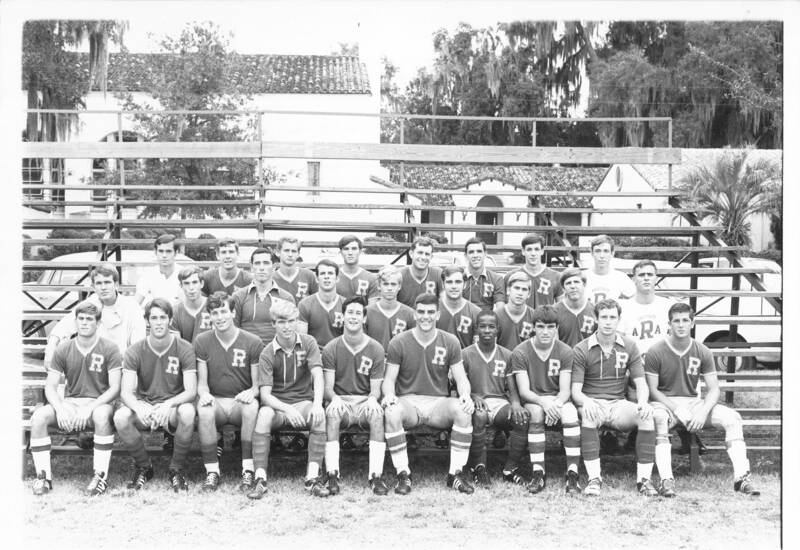 Rollins College | Image
Rollins College | Image1967-1968 Rollins College Soccer Team Picture
The 1967 team poses for a picture for the yearbook. Sophomore Bernard “Bernie” Myers was a member of Rollins’ first integrated class in 1966.Learn more -
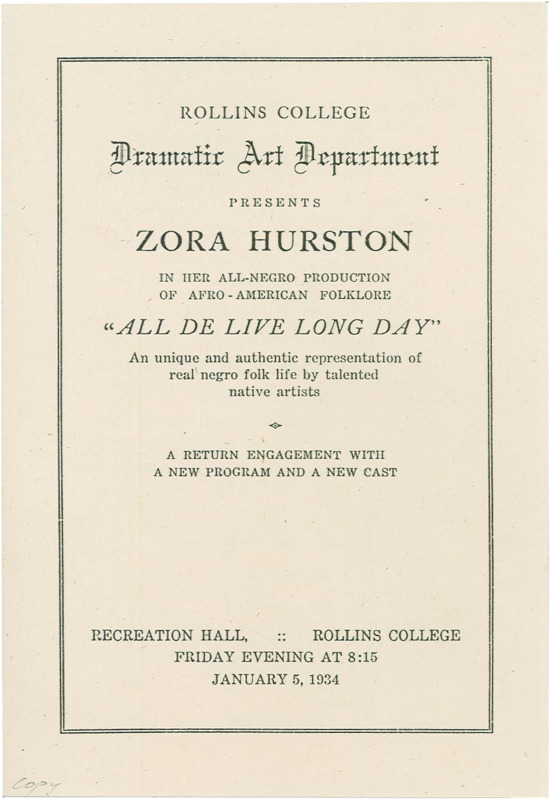 Rollins College | Text
Rollins College | TextAll De Live Long Day Program, 1934
All De Live Long Day, a program of African American folklore, music, and dance, was the second of two productions by Zora Neale Hurston to be performed on the Rollins campus during the 1930s.Learn more -
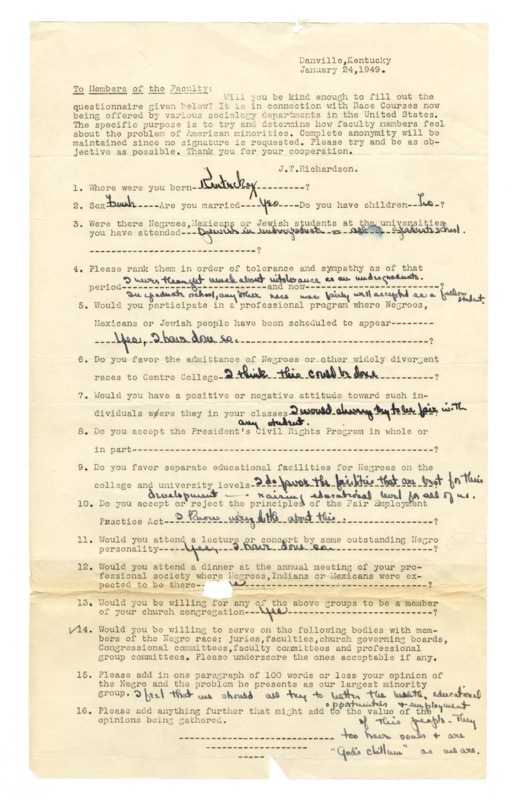 Centre College | Text
Centre College | TextAmerican minorities faculty questionnaire (1)
Anonymous responses to a questionnaire distributed to Centre College faculty January 24, 1949, the stated purpose of which was "to try an determine how faculty members feel about the problem of American minorities."Learn more -
 Centre College | Text
Centre College | TextAmerican minorities faculty questionnaire (10)
Anonymous responses to a questionnaire distributed to Centre College faculty January 24, 1949, the stated purpose of which was "to try an determine how faculty members feel about the problem of American minorities."Learn more -
 Centre College | Text
Centre College | TextAmerican minorities faculty questionnaire (11)
Anonymous responses to a questionnaire distributed to Centre College faculty January 24, 1949, the stated purpose of which was "to try an determine how faculty members feel about the problem of American minorities."Learn more -
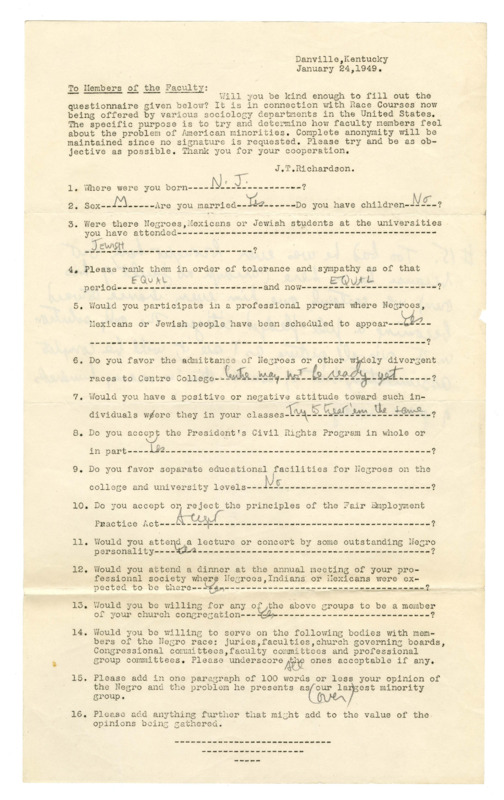 Centre College | Text
Centre College | TextAmerican minorities faculty questionnaire (12)
Anonymous responses to a questionnaire distributed to Centre College faculty January 24, 1949, the stated purpose of which was "to try an determine how faculty members feel about the problem of American minorities."Learn more -
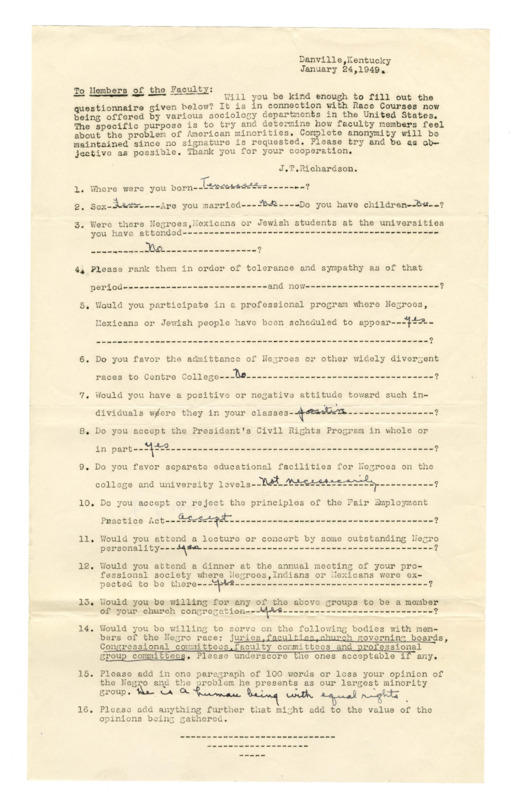 Centre College | Text
Centre College | TextAmerican minorities faculty questionnaire (2)
Anonymous responses to a questionnaire distributed to Centre College faculty January 24, 1949, the stated purpose of which was "to try an determine how faculty members feel about the problem of American minorities."Learn more -
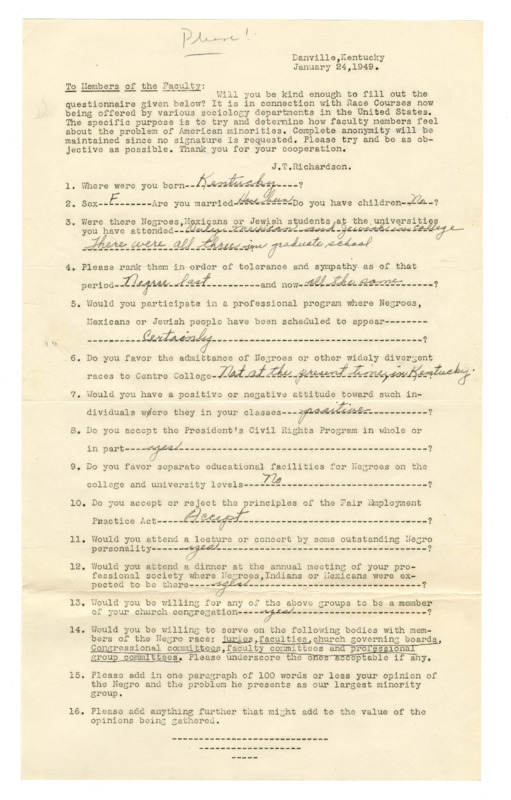 Centre College | Text
Centre College | TextAmerican minorities faculty questionnaire (3)
Anonymous responses to a questionnaire distributed to Centre College faculty January 24, 1949, the stated purpose of which was "to try an determine how faculty members feel about the problem of American minorities."Learn more -
 Centre College | Text
Centre College | TextAmerican minorities faculty questionnaire (4)
Anonymous responses to a questionnaire distributed to Centre College faculty January 24, 1949, the stated purpose of which was "to try an determine how faculty members feel about the problem of American minorities."Learn more -
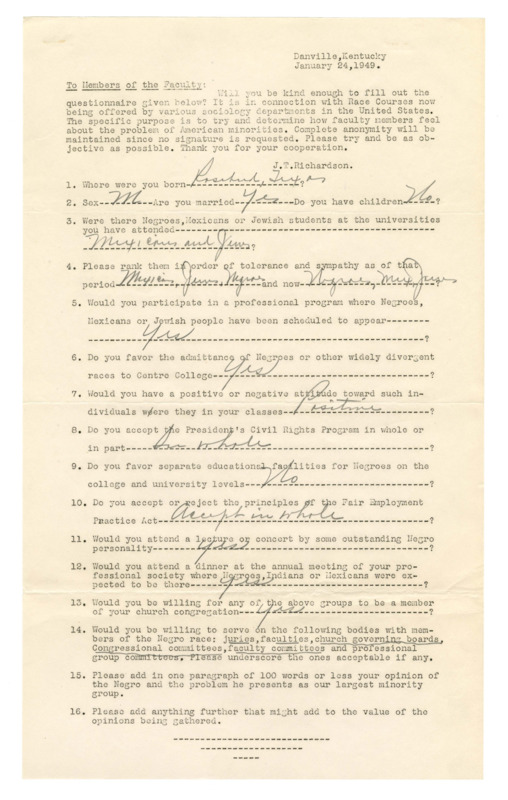 Centre College | Text
Centre College | TextAmerican minorities faculty questionnaire (5)
Anonymous responses to a questionnaire distributed to Centre College faculty January 24, 1949, the stated purpose of which was "to try an determine how faculty members feel about the problem of American minorities."Learn more -
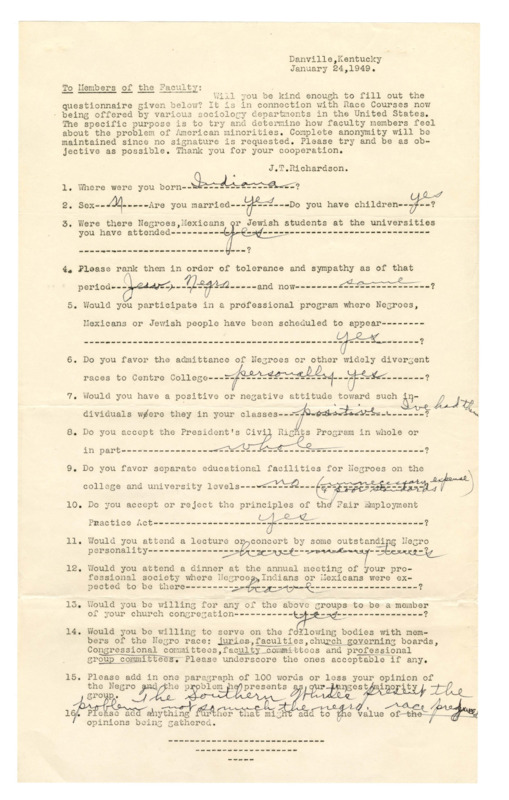 Centre College | Text
Centre College | TextAmerican minorities faculty questionnaire (6)
Anonymous responses to a questionnaire distributed to Centre College faculty January 24, 1949, the stated purpose of which was "to try an determine how faculty members feel about the problem of American minorities."Learn more -
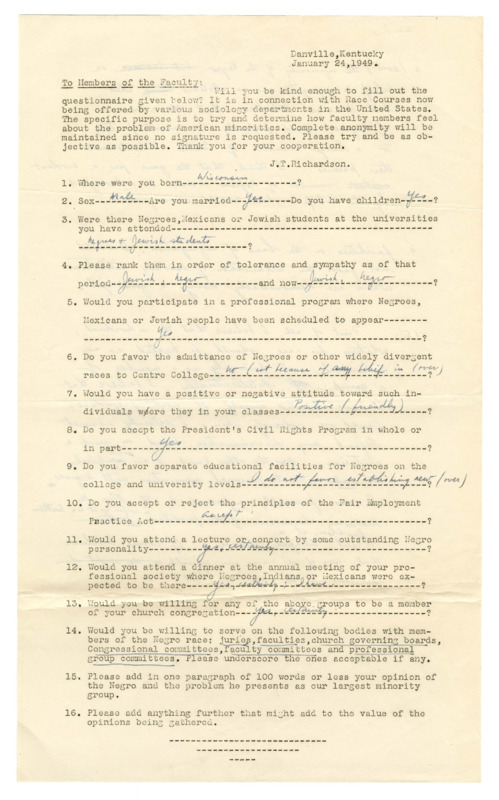 Centre College | Text
Centre College | TextAmerican minorities faculty questionnaire (7)
Anonymous responses to a questionnaire distributed to Centre College faculty January 24, 1949, the stated purpose of which was "to try an determine how faculty members feel about the problem of American minorities."Learn more -
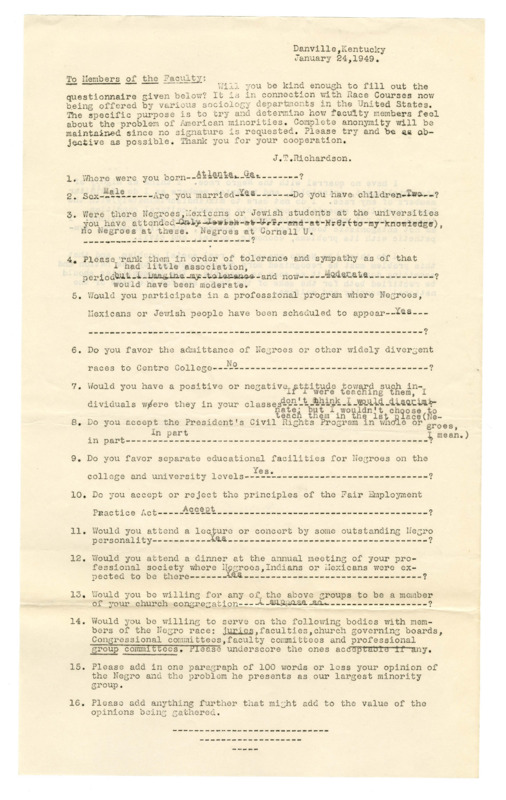 Centre College | Text
Centre College | TextAmerican minorities faculty questionnaire (8)
Anonymous responses to a questionnaire distributed to Centre College faculty January 24, 1949, the stated purpose of which was "to try an determine how faculty members feel about the problem of American minorities."Learn more -
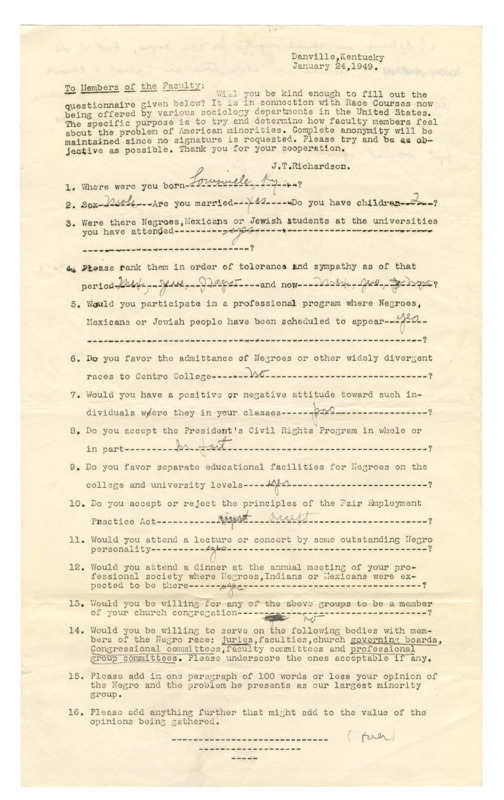 Centre College | Text
Centre College | TextAmerican minorities faculty questionnaire (9)
Anonymous responses to a questionnaire distributed to Centre College faculty January 24, 1949, the stated purpose of which was "to try an determine how faculty members feel about the problem of American minorities."Learn more -
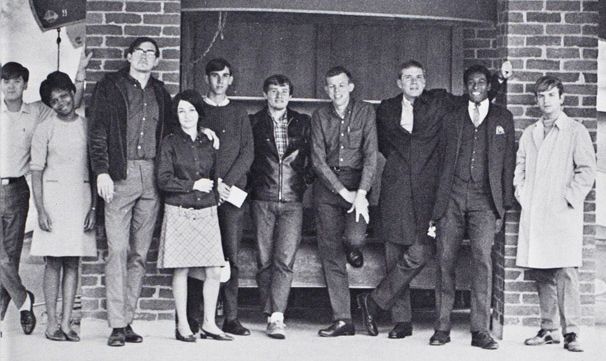 Furman University | Image
Furman University | ImageFurman Chapter of the Southern Student Organizing Committee
Photograph of the Furman Chapter of the Southern Student Organizing Committee, an organization of students committed to peace, racial equity, and participatory democracy. From the 1968 Furman yearbook: 'SSOC is convinced that society is in need of radical reform on every level, including the university level. It is our purpose to work for these reforms, both through education and direct action. Ready to organize are the members of the Southern Student Organizing Committee.Learn more -
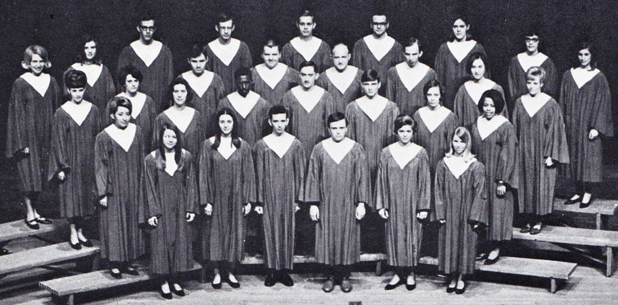 Furman University | Image
Furman University | ImageFurman Concert Choir
Joseph Vaughn '68 performing in the Furman Concert Choir. Vaughn became the university's first African American student on Jan. 29, 1965.Learn more -
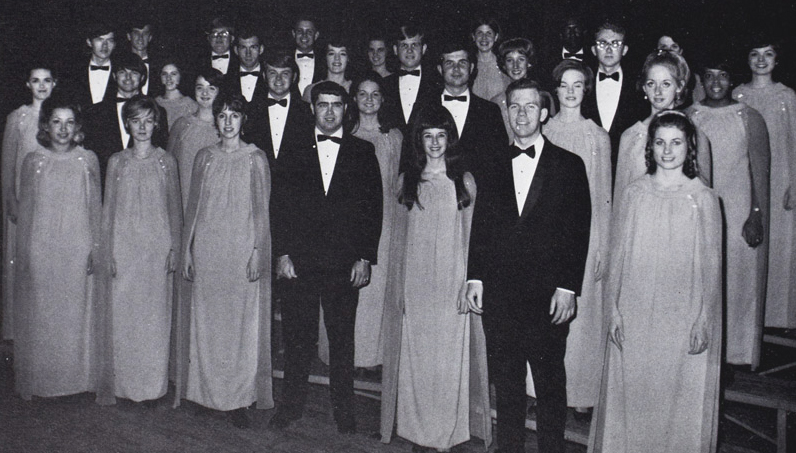 Furman University | Image
Furman University | ImageFurman Concert Choir
The 1969-1970 Furman University Concert Choir. A member of the choir, Sarah Reese '71, can be seen at the far right in photo, third row. Reese enrolled at Furman in 1967 as one of the university's first African American women. Sarah Reese would later become a world-famous opera singer.Learn more -
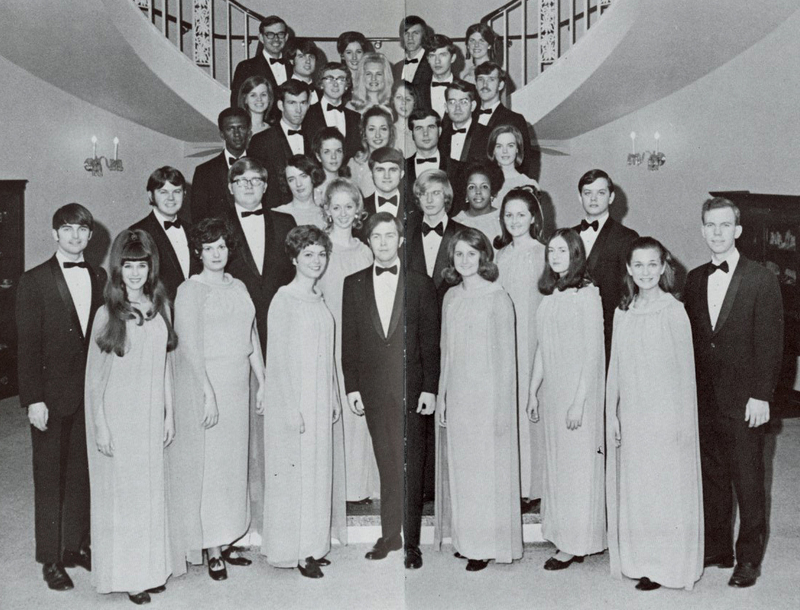 Furman University | Image
Furman University | ImageFurman Concert Choir
The 1970-1971 Furman University Concert Choir. Members of the choir include: Sarah Reese '71, in the third row, far right, and Ronald (Rawn) Harbor '71, in the fourth row, far left. Reese and Harbor were some of Furman's first African American students.Learn more -
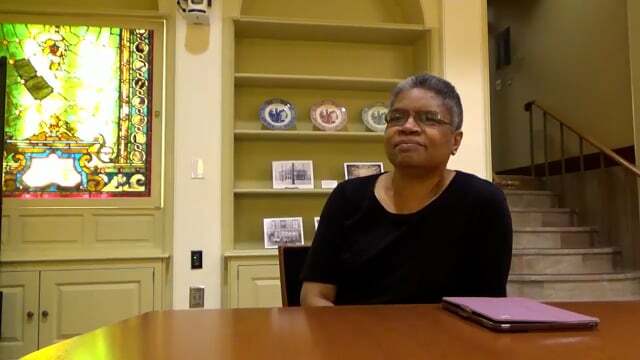 Furman University | Moving image
Furman University | Moving imageJune Manning Thomas Oral History
Video interview with June Manning Thomas. Ms. Thomas enrolled at Furman in 1967 as one of the university's first African American women. She begins the interview speaking about her hometown, Orangeburg, South Carolina, during the 1960s, and being a part of the first group of African American students to attend racially integrated public schools there. As a high school student June attended a summer program at Furman, and she talks about the program and how it infuenced her decision to attend Furman. Ms.Learn more -
 Centre College | Text
Centre College | TextLetter from Conway Boatman to Walter A. Groves stating Union College's present policy on admitting persons of color
Letter from Conway Boatman to Walter A. Groves regarding Union College's policy on raceLearn more -
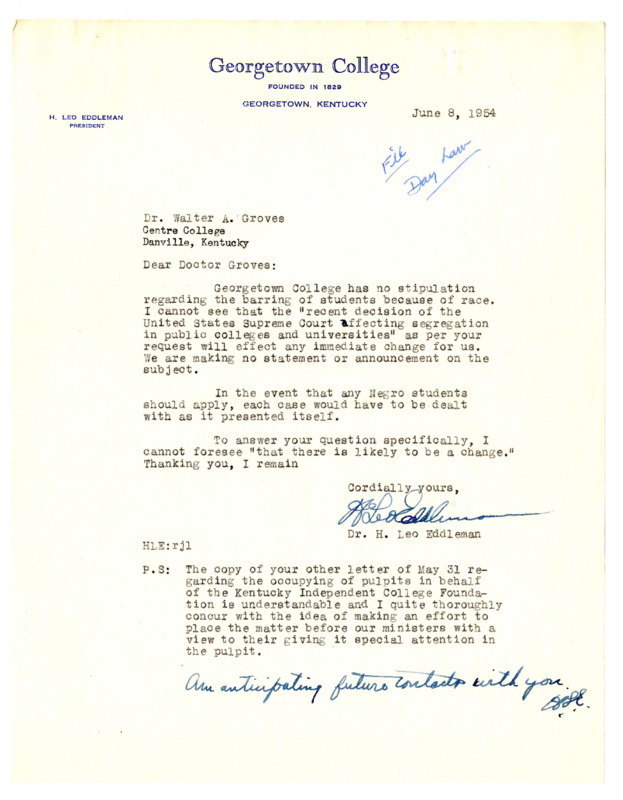 Centre College | Text
Centre College | TextLetter from H. Leo Eddleman to Walter A. Groves stating Georgetown College's present policy on admitting persons of color
Letter from H. Leo Eddleman to Walter A. Groves regarding Georgetown College's policy on raceLearn more -
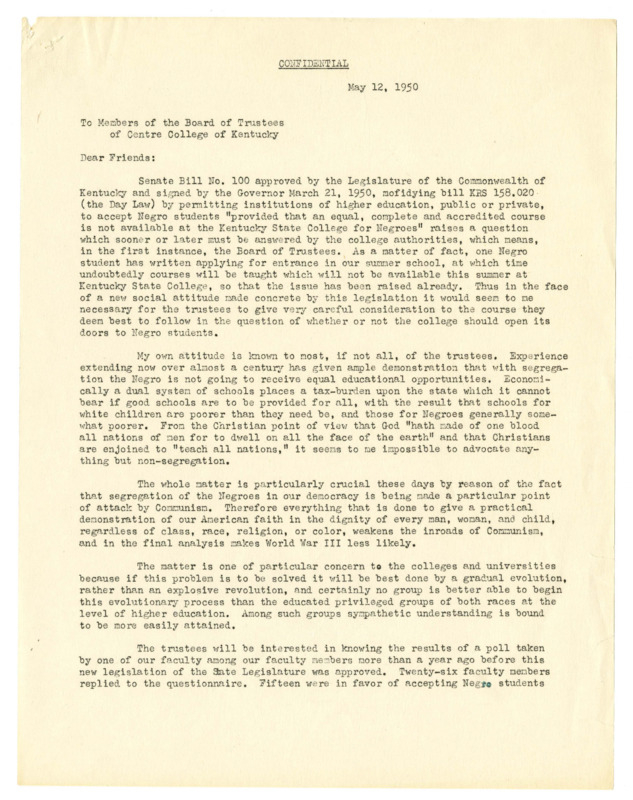 Centre College | Text
Centre College | TextLetter from Walter A. Groves to the Centre College Board of Trustees, May 12, 1950
Letter from President Groves, dated May 12, 1950, to the B.O.T. in which Groves entreats the Board to "give very careful consideration to the course they deem best to follow in the question of whether or not the college should open its doors to Negro students." Groves references Senate Bill No. 100, states his own desire to integrate the College slowly, and references the American minorities faculty questionnaire distributed in January 1949, the results of which showed a majority of faculty respondents in favor of desegregationLearn more -
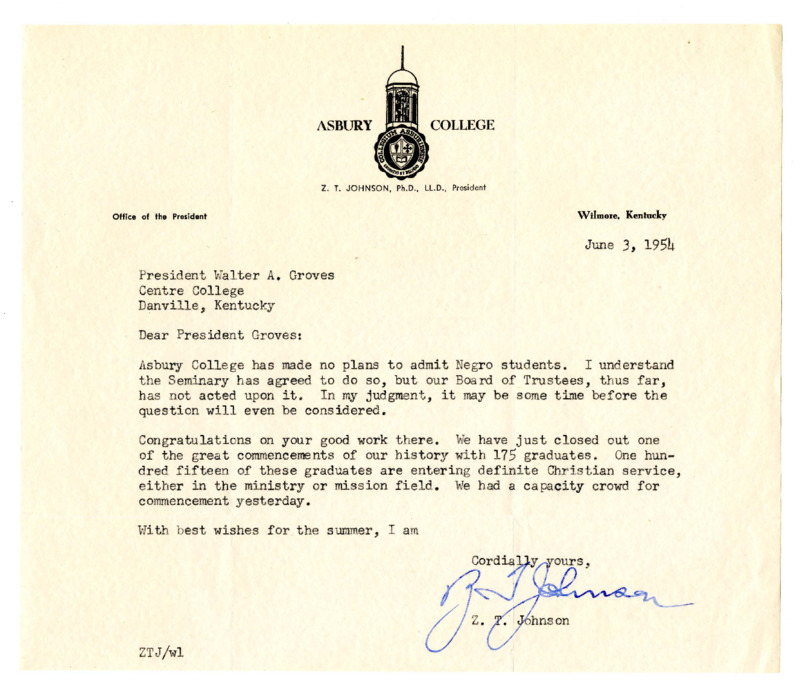 Centre College | Text
Centre College | TextLetter from Z. T. Johnson to Walter A. Groves stating Asbury College's present policy on admitting persons of color
Letter from Z. T. Johnson to Walter A. Groves regarding Asbury College's policy on raceLearn more -
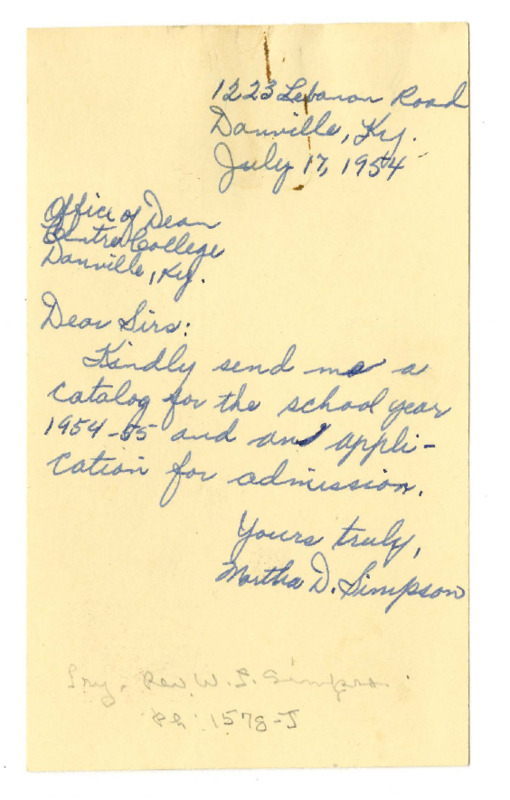 Centre College | Text
Centre College | TextMartha D. Simpson application request letter
Letter from Ms. Martha D. Simpson of Danville, KY, dated July 17, 1954, to the Centre College Office of the Dean, requesting a college catalog and application for admissionLearn more -
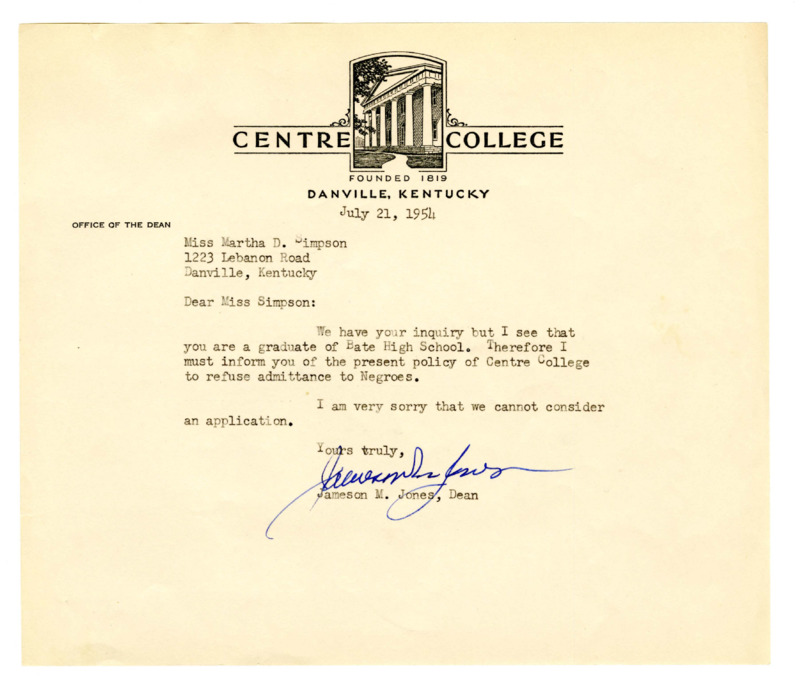 Centre College | Text
Centre College | TextMartha D. Simpson rejection letter
Letter from Centre College Dean Jameson M. Jones to Ms. Martha D. Simpson, dated July 21, 1954, in which he rejects her application for admission to Centre College based upon the fact that Ms. Simpson was a graduate of Bate High School, an all-black school in Danville, and therefore assumed to be a person of color and thus not eligible for admissionLearn more
